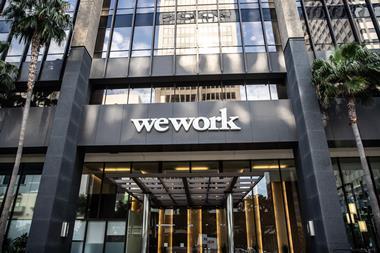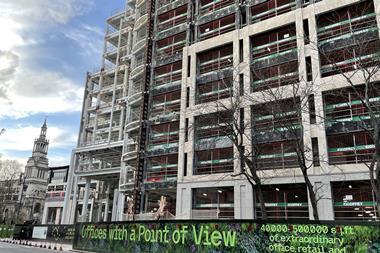It has been coming. We all knew that as we emerged from the pandemic, businesses would review their workplace needs. Some would revert to what they had prior to Covid. Some would downsize. Others would open satellite offices or take flexible workspace to support a smaller head office.

But the news Currys is shutting its west London head office and asking staff to use 50 or so WeWorks around the country, including a permanent space for 400 staff in the WeWork next to Waterloo station, still came as a surprise – not because it is taking flexible workspace, but because it is taking so much of it.
It is thought to be the first major company to switch almost all its office space to a flexible workspace provider. It won’t be the last. The question is: how many others will follow suit and what will it mean for the office market? Are we witnessing the beginning of a paradigm shift from fixed space to flex?
It is tempting to say ‘yes’. Why wouldn’t businesses want to cast off the shackles of long-term leases on large chunks of space in favour of flexible, shorter-term leases on space that can be adapted to their needs? I can’t help but think that Currys’ choice of operator is significant, though. It isn’t any old operator, after all. It is the once mighty WeWork. Is it possible that as it continues to plot its path in the post-Adam Neumann world, WeWork is still offering lengthy rent-free periods to lure occupiers?
Regardless of the terms involved, the deal is a major coup for WeWork, which could do with a bit of good PR right now, coming as it does just after Apple TV aired its new docudrama series WeCrashed, starring Jared Leto as Neumann and Anne Hathaway as his wife Rebekah.
In hindsight, it’s extraordinary that pretty much the whole world was duped by ‘The Cult of WeWork’, as Property Week referred to it in 2018, but it was duped, so much so that when we first dared to question its business model, in 2017 (‘How will WeWork work out?’), we received complaints from people suggesting we didn’t understand its vision.
We didn’t. In that first piece, we asked how sustainable the company’s growth trajectory was, as it barrelled towards an IPO that didn’t happen but at the time was expected to see it valued at $17bn.
When we commissioned an undercover journalist to go to the summer camp a year later, the resulting story was the most read on PropertyWeek.com in recent years and one of the first articles to liken WeWork to a cult, a word that has been used repeatedly since. Also oft quoted is Rebekah’s remark to the assembled crowd that “a big part of being a woman is to help men [like Adam] manifest their calling in life”.
Yet the alarm bells failed to sound, and still the company grew, SoftBank’s CEO Masayoshi Son so mesmerised by the messianic Neumann that he reportedly backed him to the tune of $18.5bn. Then finally, the realisation dawned, and the wheels came off. In 2019, we reported on the ‘Rise and fall of WeWork’ shortly after the business was forced to pull its IPO.
Under its new ownership, WeWork, which finally went public last year via a SPAC that valued it at $9.3bn, a fraction of its high watermark valuation of $47bn, has bounced back. Whether it has learned from its past mistakes remains to be seen.





























No comments yet